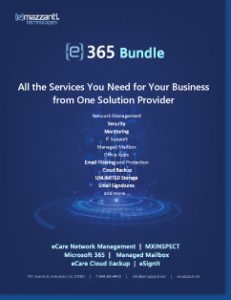We recently invited Attorneys to answer three questions about law firms migrating to the cloud: Why do law firms delay migration to the cloud? Is cloud data security for law firms better or worse than in-house security? and, What should law firms look for in a cloud services provider?
The firms who responded below have successfully moved to the cloud. Thus, consider their informative opinions on migrating to the cloud, cloud data security and choosing a cloud services provider.
Improve Network Equipment and Bandwidth First
Thomas J. Simeone of Simeone & Miller, LLP, responded:
There are three primary reasons our firm waited. First is the effort. Lawyers are busy and moving to the cloud requires time to plan, select a vendor, and oversee the migration.
Second is the risk that something can go wrong. Lawyers have a duty to preserve client data and moving it to a remote computer entails risk that some data may be lost.
Third, users will all be accessing client data, including large documents, pictures, and videos through the internet. So a firm needs a good internet connection and sufficient bandwidth to avoid inefficiencies.
For our firm, the first step to moving to the cloud was to improve our network equipment and increase our bandwidth.
A good cloud solution is better and more secure than in-house security. If you have a fast and reliable internet connection and the cloud server is stable, then migrating to the cloud offers several security advantages. For example, your data is protected by state-of-the-art equipment and procedures and you do not have to deal with securing your data on site.
The most important factor is a reliable cloud service provider with state-of-the-art security. Indeed, that will fulfill a lawyer’s ethical duties and save time and money by avoiding delays in accessing data and, worse yet, loss of data.

Minimize Costs and Streamline Firm Efficiency
Sherwin Arzani, Managing Partner at Citywide Law Group and practicing personal injury attorney in Los Angeles says:
Breaches of confidentiality can be devastating and must be avoided at all costs. Therefore, specific policies must be in place to ensure that migration is done securely and in compliance with state and federal law.
Outsourcing data security can help to minimize costs and streamline firm efficiency. In addition, if a firm chooses a reputable vendor with highly-proficient employees, the risk of suffering a security breach may be minimal. Outsourcing security to a legitimate provider can help to reduce risks of breaches.
A firm needs to make sure that they hire a provider that can serve its particular needs. It’s best to choose a provider who has experience handling firm data and is comfortable with your management software.
Bank-Grade Security
Attorney Nance L. Schick, an attorney/arbitrator/mediator and early adopter of cloud technology who has been in solo practice since 2003, www.nschicklaw.com, offers:
Among the reasons law firms delay migration to the cloud are fear of the unknown and security concerns. Lack of time to learn and implement and investments in on-site systems also play a role.
In some ways, cloud data security seems safer. Accounts can be disabled in seconds, and limitations on file sharing can be implemented. This is similar to the ways we limit access to highly-sensitive files in our offices. However, when controls aren’t in place or diligently maintained, accounts can be compromised easily and on broad scales.
In a cloud services provider, law firms should look for:
- At least bank-grade security
- References from attorneys who practice in similar subject areas
- Data storage in the United States, in the event jurisdiction in needed
- Data storage and return in a format easily readable by common software
- Integrations with hardware and software you are currently using
- Return on investment
- Client preferences or requirements

Getting a Step Up in Security
Gabriel Katzner of Katzner Law Group, P.C. related:
Law firms can often be stuck in their ways of doing things. When you’re entrenched in the old ways it’s often difficult to make a massive change such as “how do we access our documents?” This can often be detrimental to the firm’s growth as migrating to the cloud can have far reaching benefits, both for employees and the client side.
I believe that cloud data security far exceeds in-house security if properly setup and structured. Few law firms have “bank grade” security. Whereas, if things are hosted in the cloud, with a top-notch company in compliance with everything required by your state bar, you’ll be getting a step up in security by hosting documents with them as opposed to internally.
What should law firms look for in a cloud services provider? One that uses “bank grade” security, has multi-authentication login, and understands what it means to work with attorneys who not only have to worry about their clients but also about state bar requirements and compliance therewith.
Be Among the Law Firms Migrating to the Cloud Successfully
Whether your firm maintains its data in-house or seeks to migrate to the cloud, eMazzanti Technology’s Legal Managed IT experts ensure secure, remote access to data, network security 24/7, eDiscovery data encryption and automated business continuity processes.
As legal Office 365 experts, eMazzanti provides proven Office 365 solutions to ensure confidentiality, security and compliance while sharing sensitive information with clients, teams and colleagues anytime and anywhere. We also offer secure system integration for time management, billing, litigation and document management software.













